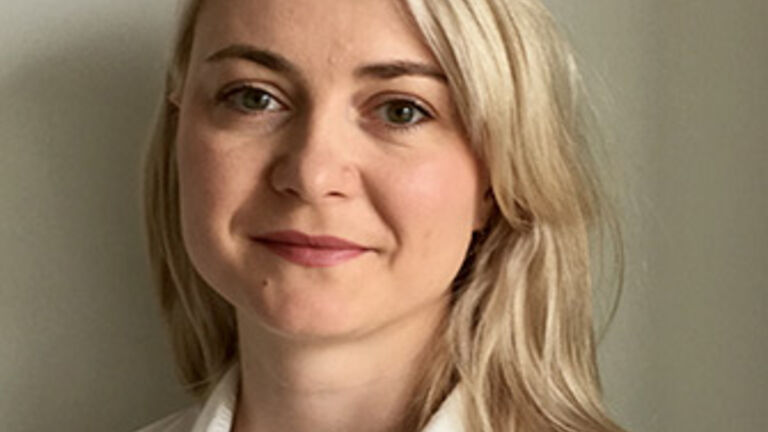
Magdalena Moskalewicz Receives the 2017 Jean Goldman Book Prize
The School of the Art Institute of Chicago (SAIC) announced the winner of the 2017 Jean Goldman Book Prize. The recipient of this year’s award is SAIC faculty member Magdalena Moskalewicz for her work editing the book, Halka/Haiti 18°48'05"N 72°23'01"W. The annual prize is awarded to the most outstanding publication by a faculty member teaching in SAIC’s Department of Art History, Theory, and Criticism and was presented by SAIC’s President Elissa Tenny and James Rondeau, Eloise W. Martin Director of the Art Institute of Chicago, at the annual Literary Lions Luncheon on October 11 at the Casino Club in Chicago.
Moskalewicz teaches contemporary art and curatorial studies at SAIC. Born in Warsaw, Poland she is an art historian, critic, and curator. She received an A.W. Mellon Postdoctoral Fellowship at the Museum of Modern Art in New York, where she studied experimental art from Central and Eastern Europe. Previously she served as editor-in-chief of Poland’s monthly contemporary art magazine, Arteon. Awarded a doctoral degree in art history from Adam Mickiewicz University for her research into the Polish neo-avant-garde of the 1960s, she focuses on national identities in order to reshape national narratives.
Halka/Haiti 18°48'05"N 72°23'01"W is a book that tells an intriguing, multilayered story about a single work of art: a film of a performance of the famed Polish opera, Halka, by Stanislaw Moniuszko that was staged in 2015 in Cazale, Haiti, a village now inhabited by the descendants of Polish soldiers who fought for the Haitian Revolution in the early 1800s. Halka/Haiti 18°48'05"N 72°23'01"W, a collaborative project by artists C.T. Jasper and Joanna Malinowska, is inspired and provoked by the title character in Werner Herzog’s film Fitzcarraldo (1982). The story is haunted by the peasant uprising of 1846 and recounts one man’s obsessive mission to build an opera house in the tropics. The newly staged opera was featured in the Polish Pavilion of the 56th Venice Biennale.
Halka/Haiti 18°48'05"N 72°23'01"W explores many unexpected connections between Haiti and Poland, providing important context and history to every layer of this project. A somewhat enigmatic book, handsomely bound in green cloth, it is a publication that was intended to complement the Biennale installation. In fact, since the Venice exhibition it describes was itself a documentation of a work of performance art, this book is about a show about a performance about an opera. Volume editor and curator of the Venice Biennale installation Moskalewicz formed a coherent whole from truly disparate elements, including interviews with the artists, essays on the development of Moniuszko’s opera, class difference and Polish identity, the history of the Haitian Revolution, and the village of Cazale–the location where the opera was staged on February 7, 2015. A one-time-only performance, it was a collaboration between Polish and Haitian performers, filmed in one take in the hometown of descendants of Polish soldiers who fought for the Haitian revolution in the early 1800s.
With its beautiful and charming design that balances text and images, it incorporates Polish and Haitian voices with numerous color photographs to tell the story. It addresses the larger historical, social, and political issues through the opera, recounting an incident in Polish history in a layered and complex tale, which mirrors the way Poland’s history–like Haiti’s–has contributed to a national identity.
